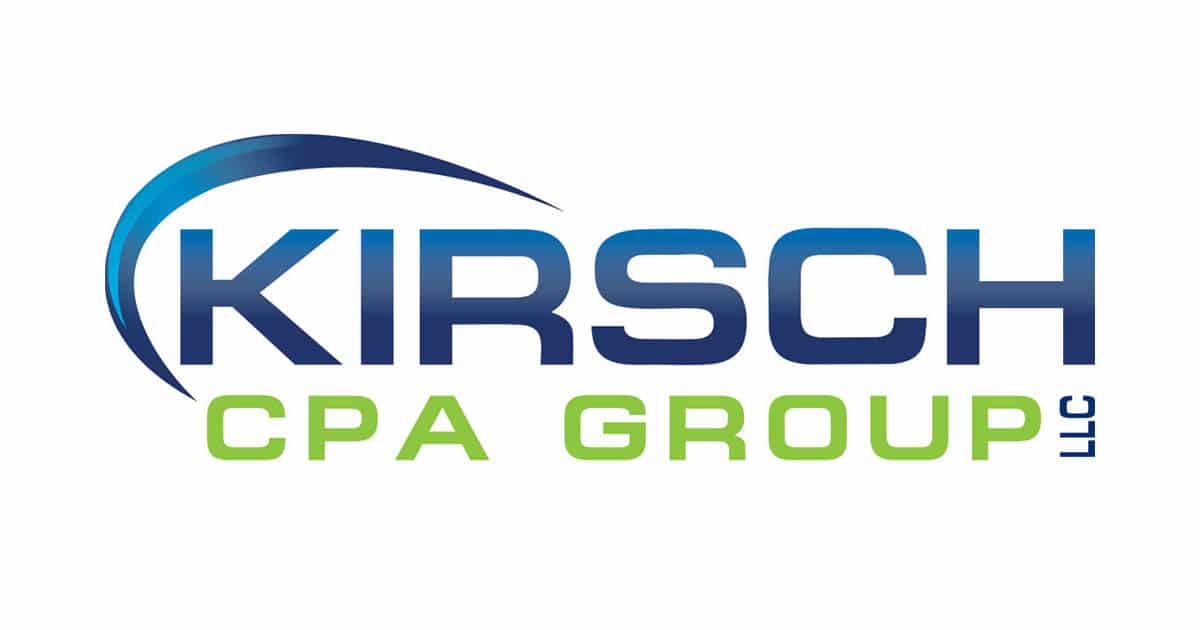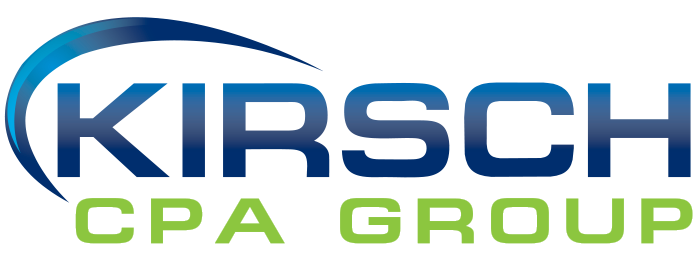Tax Planning Strategies to Reduce AGI
Kirsch CPA Group
Oct 15, 2019

Reducing your current-year adjusted gross income (AGI) is usually a tax-smart idea. Here are ten tax planning strategies to reduce your AGI (and modified AGI) over the short and long run.
Closeup on AGI
AGI equals all taxable income items minus selected deductions for such items as deductible IRA and retirement plan contributions and alimony payments required by pre-2019 divorce agreements.
Lowering your AGI reduces your taxable income for the year and your exposure to unfavorable AGI-based provisions. For example, lowering AGI can increase the amount of Social Security benefits that you can receive federal-income-tax-free and increase your allowable higher education tax credits.
5 Ideas for 2019
It’s not too late to reduce your AGI for the current tax year. Consider these last-minute tax planning strategies:
1. Sell loser securities held in taxable brokerage firm accounts. The losses can offset earlier gains in such accounts. This will also help higher-income taxpayers reduce their exposure to the 3.8% net investment income tax (NIIT). Note: Without gains to offset, losses aren’t that helpful because they’re limited to $3,000 per year. If your net capital loss is more than this limit, you can carry the loss forward to later years.
2. Gift soon-to-be-sold appreciated securities to family members. Assuming the recipient is in a lower tax bracket, this strategy also can help reduce tax owed on the gain. But beware of the kiddie tax, which can potentially apply until the year your gift recipient turns 24.
3. Donate appreciated securities, rather than cash, to IRS-approved charities. The charity won’t owe tax on the gain — and you’ll get a deduction for the full fair market value of the donated securities if you’ve held them for more than a year. This strategy can also help higher-income taxpayers reduce their exposure to the 3.8% NIIT.
4. Maximize deductible contributions to tax-favored retirement accounts. Contribute as much as is allowed (and you can afford) to 401(k) accounts, self-employed SEP accounts, self-employed SIMPLE IRAs and other tax-favored retirement accounts. As a bonus, you’ll have a bigger nest egg when you retire.
5. Defer revenue from small businesses and accelerate business expenses. If you’re a cash-basis self-employed individual, you can take steps to postpone collections until 2020 or, conversely, accelerate deductions taken in 2019. For example, you might delay billing a customer until January for work completed near year-end, or you might prepay deductible business expenses using a credit card.
5 Long-Term Tax Planning Strategies
Sometimes taxpayers need to consider the long-term view — even if they might have to pay extra taxes in the short run. The following moves could help significantly over the long run, especially if tax rates are higher in future years:
1. Convert traditional retirement account balances to Roth accounts. The deemed taxable distributions that result from Roth conversions will increase AGI and potentially your exposure to the 3.8% NIIT in the conversion year. However, income and gains that build up in a Roth IRA won’t be included in your AGI in future years. That’s because qualified Roth distributions are federal-income-tax-free. Qualified Roth distributions are also free of the 3.8% NIIT.
In contrast, the taxable portion of distributions from other types of tax-favored retirement accounts and plans will be included in your future-year AGI. Plus, they’ll increase your future-year exposure to the 3.8% NIIT.
2. Invest taxable brokerage firm account money in growth stocks. Gains aren’t taxed until the stocks are sold. At that time, the negative tax impact of gains often can be offset by selling other securities that will incur losses for tax purposes. In contrast, stock dividends are taxed currently, and it may not be as easy to offset them.
3. Invest more taxable brokerage firm money in tax-exempt bonds. This would reduce your future AGI and your future exposure to the 3.8% NIIT. You can use tax-favored retirement accounts to invest in securities that are expected to generate otherwise-taxable gains, dividends and interest.
4. Invest in rental real estate and oil and gas properties. Rental real estate income can be offset by depreciation deductions; oil and gas income can be offset by deductions for intangible drilling costs and depletion. These deductions will reduce AGI.
5. Invest in life insurance products and tax-deferred annuity products. Life insurance death benefits are generally exempt from both federal income tax and the 3.8% NIIT. Earnings from life insurance contracts and tax-deferred annuities aren’t taxed until they’re withdrawn.
Multiple Levels of Tax Savings
Some of these tax planning strategies can reduce both your regular federal income tax (FIT) bill and, if applicable, your NIIT bill. If you’re self-employed, some may also lower your self-employment tax bill. Finally, these strategies can also reduce your state income tax bill, if you live in a state that assesses a personal income tax.
Some strategies may take some time to implement, however. The 4th quarter is right around the corner, if you want to identify tax planning strategies that can help your situation contact Kirsch CPA Group at 513.858.6040.
More Resources

About The Author
Kirsch CPA Group is a full service CPA and business advisory firm helping businesses and organizations with accounting,…
Sign Up for Email Updates
Tags
Accounting & Financial News

Growth Strategies: How to Take Your Business to the Next Level
Once your business has survived the start-up phase, it's got a solid foundation to grow. Business and…





